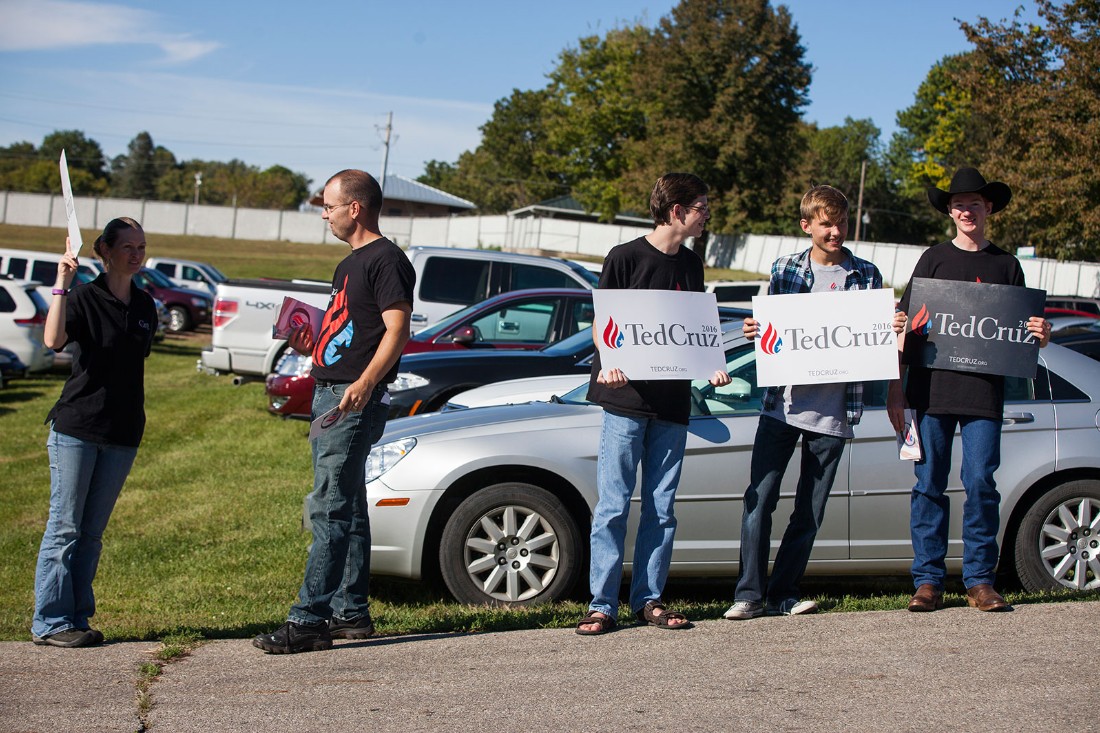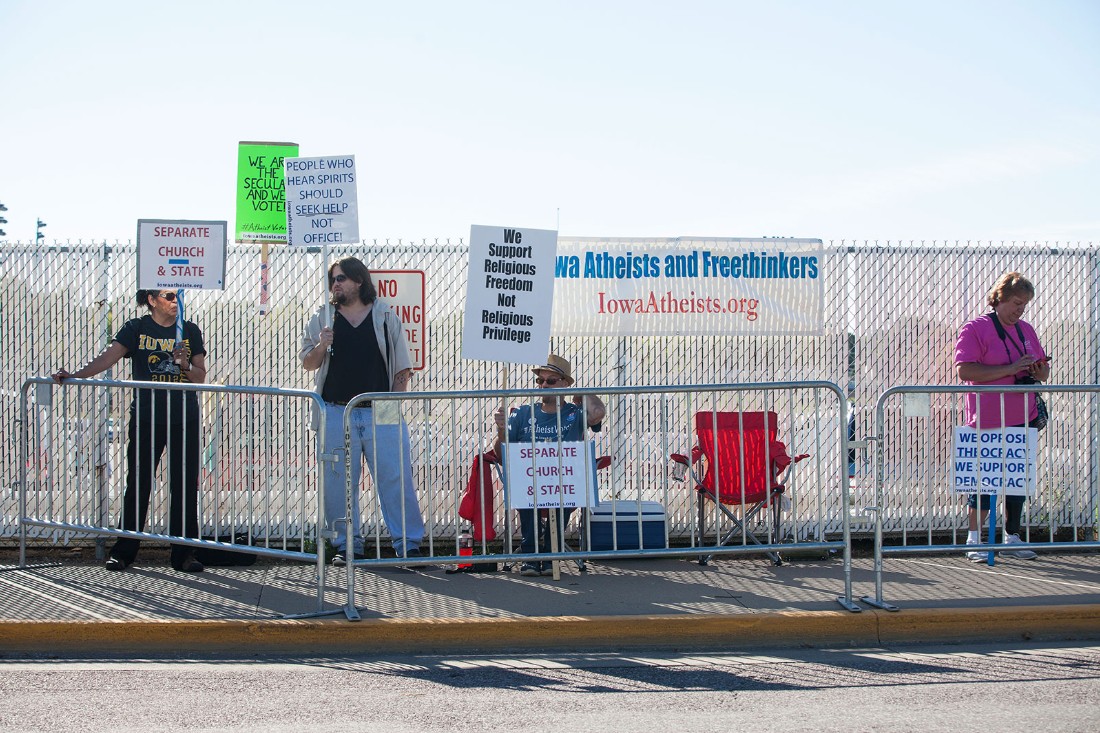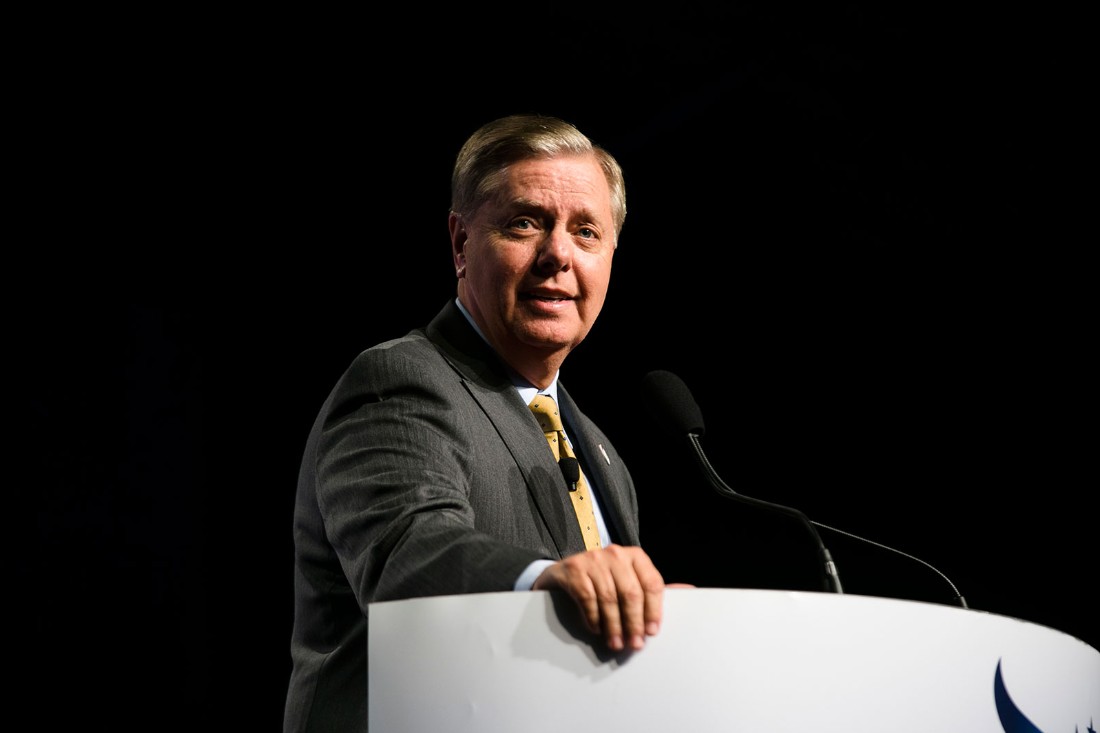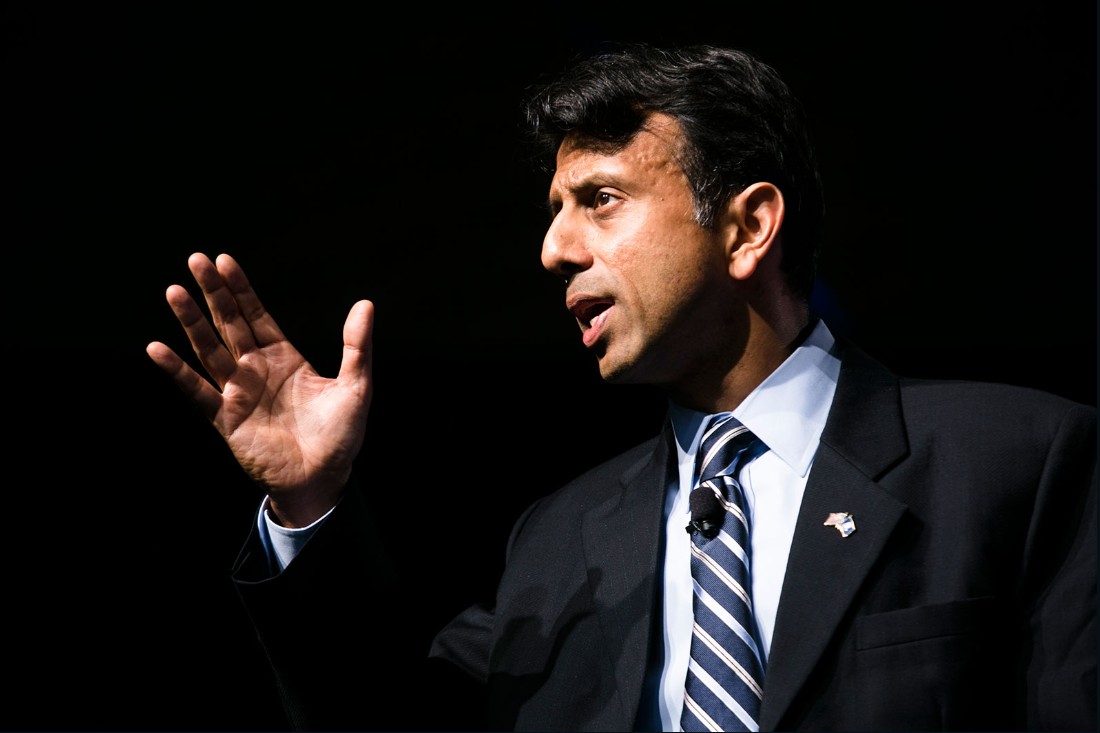Fear and voting
on the Christian right
A wedding chapel went out of business because its evangelical owners refused to host a same-sex wedding celebration. Conservative Christians are on edge—and they could sway the presidential election.
Grimes, Iowa
They called her a bigot, a homophobe, even a racist, which was strange, because the two gay men were white and so was Betty Odgaard. The angry people on the Internet told Betty she would die soon, that her death would be good for America, and then she would probably go to hell.
Betty had other ideas about her final destination, but she agreed it was time to go. "Take me home," she prayed, without effect. Revenue kept declining. Two years passed. One night this summer, just after the Görtz Haus wedding chapel closed forever, she and her husband sat in the basement and thought about the choices they'd made in the name of God.
"I would do it all over again," she said with an air of defiance.
According to Sen. Ted Cruz, the presidential candidate from Texas who intends to lead a conservative revolution, Richard and Betty Odgaard deserve a round of applause. According to his more moderate competitors for the Republican nomination, the Odgaards deserve some kind of accommodation. According to the Democrats, the Odgaards deserve what they got. In any case, stories like theirs could alter the next election.
A growing number of fundamentalist Christians believe the government is singling them out for persecution. Their fear intensified this summer when the Supreme Court legalized same-sex marriage nationwide. That decision put tens of millions of Americans who hold traditional Christian beliefs at odds with the law and the majority. It also could drive them to the polls in large numbers, which is why a number of Republican candidates are playing to their fears — and why Hillary Clinton has used their rhetoric against them to motivate her own Democratic base.
"Fearful and angry people vote," said Dennis Goldford, a professor of political science at Drake University in Iowa who studies the intersection of religion and politics. "People may well vote to advance certain kinds of ideals, but they will also vote if it's a matter of self-protection."
The potential strength of evangelical voters was on display this week when their support propelled Dr. Ben Carson to the head of the Republican pack for the first time nationally and in Iowa, home to the first caucuses. Carson led Donald Trump by 22 percentage points among evangelical voters in a nationwide New York Times/CBS News poll released Tuesday. That gap represented a massive shift from earlier in the month, when evangelicals split their support evenly between the two frontrunners, and it gave Carson a slim lead over Trump. At Wednesday's Republican debate in Colorado, Carson appealed to fundamentalist Christians once again.
"They shouldn't automatically assume that because you believe that marriage is between one man and one woman that you are a homophobe," he said. "And this is one of the myths that the left perpetrates on our society, and this is how they frighten people and get people to shut up."
White Christians have dominated the United States for centuries, often at a terrible cost to other ethnic and religious groups, so it might seem strange to hear them complaining about persecution. But their fear goes beyond the wedding industry, and it runs deeper than a wish to preserve tradition. They worry that rejection of the new cultural norms will cost them jobs, businesses, college accreditation, even tax-exempt status for their churches. At the Liberty Institute, a nonprofit organization that fights for religious liberty in court, president Kelly Shackelford said calls for assistance nearly quadrupled after the Supreme Court decision. In a September poll by the Christian magazine WORLD, a group of about 100 evangelical leaders and insiders said religious freedom would be the leading factor in their choice of presidential candidate.
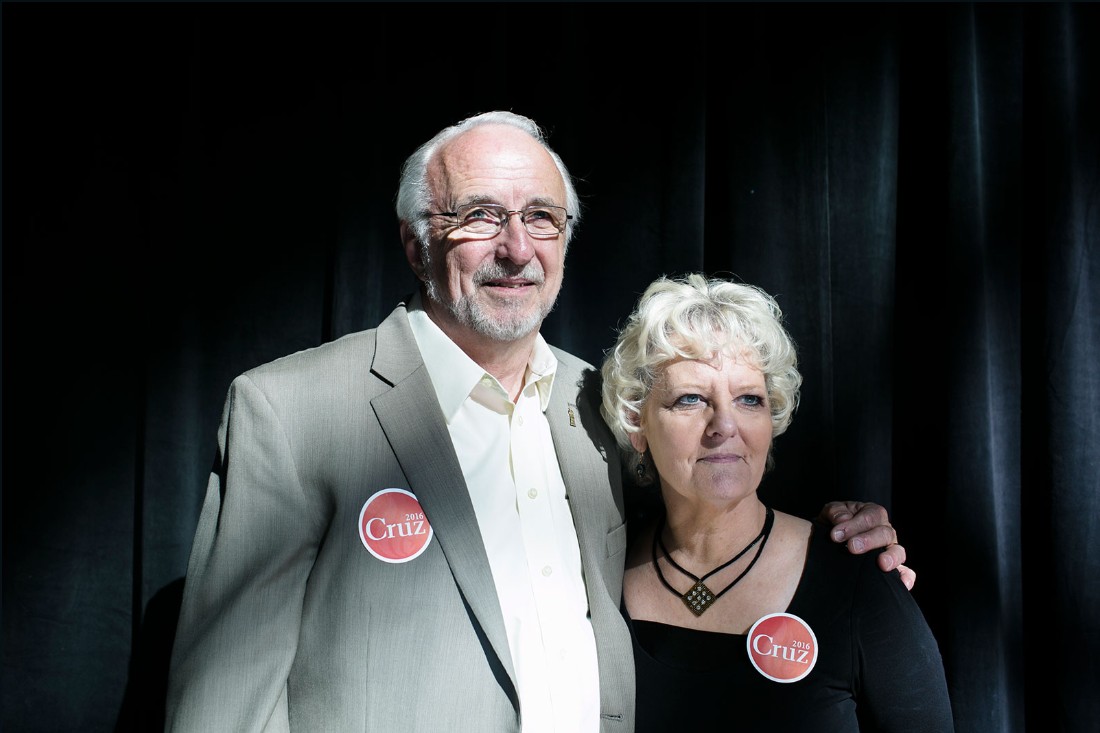
Richard and Betty Odgaard attend the Iowa Faith & Freedom Coalition's Fall Family Dinner on Saturday, September 19, in Des Moines, Iowa. The Odgaards, owners of the Görtz Haus, refused to host a same-sex wedding celebration in 2013, and stopped hosting weddings altogether in January. Taylor Glascock for CNN
History suggests that nearly half the voters in the Republican primaries and caucuses will be white evangelicals. Thus, if you want the nomination, you must address their fears. You can do this delicately, as former Florida Gov. Jeb Bush and Sen. Marco Rubio have done, in the hope that a subtle appeal will win just enough of them to get you through the primary without alienating the moderates. You can do it awkwardly, as Donald Trump has done, by waving your Bible and making vague promises. You can do it straightforwardly, as Carson and Carly Fiorina have done, by telling stories about your own faith. Or you can make the pursuit of these anxious Christians the central strategy of your campaign, as Cruz and former Arkansas Gov. Mike Huckabee have done, by visiting county clerk Kim Davis when she was jailed in Kentucky and loudly declaring that Christianity itself has become a crime.
The general election will be about many things: the economy, foreign policy, health care, immigration. It is also likely to give voters a choice between a president who supports the Odgaards and a president who believes they were wrong.
'Will this be a gay wedding?'
Seven years ago, when the Odgaards hosted the first wedding in the old stone church they had saved from demolition and converted to a for-profit wedding chapel, Americans saw marriage in a different way. "I believe that marriage is the union between a man and a woman," Barack Obama said on his way to becoming president. Voters banned same-sex marriage in the progressive state of California. In public-opinion polls, support for same-sex marriage hovered around 40%.
Then the culture shifted with astonishing speed. In April 2009, with a decision by the state Supreme Court, Iowa became the third American state to legalize same-sex marriage. Every time the telephone rang at the Görtz Haus, the Odgaards wondered if this would be the request that forced them to choose between their Mennonite convictions and the new state law. In 2011, a CNN poll showed that public support for same-sex marriage had reached 51%. President Obama followed, as did Hillary Clinton.
On August 3, 2013, a warm and cloudy Saturday in a small town surrounded by cornfields, two men pulled up to the Görtz Haus in a red Chevrolet Camaro. The old church also contained an art gallery, a flower shop, and a bistro whose sandwiches included The Rembrandt: roast beef, Swiss and lettuce with horseradish sauce on a French roll. Lunchtime was winding down, and Richard Odgaard took a break from washing dishes to greet the two men and give them a tour. He was mildly suspicious, because in his experience the bride usually handled this kind of thing, but for all he knew this was the groom and his best man.
They asked about a date in October. Yes, that was available. Could the wedding and reception be in the same room, with a cocktail hour in between? No problem. Vegetarian menu options? Of course. He led them through the sanctuary, past Betty's sunset paintings on the walls, below the balcony, with the stained-glass window that depicted a castle on a rock in a rolling sea. "A mighty fortress is our God," the caption said. Richard was getting nervous, because he knew the question he was about to ask, and had a feeling he knew the answer, and had worried for years about how that answer might change his life.
He looked at them, and asked:
"Will this be a gay wedding?"
"Yes," Lee Stafford said, because now he finally could, given that homosexual activity was no longer a capital offense in America, not even criminal since 2003, and he no longer had to pretend he liked girls, as he'd done through most of grade school and into college, and he no longer answered to the well-meaning pastor who told him he could still go to heaven as long as he wasn't actively sinning in that manner. Lee had grown up in blue-collar rural Indiana, where he never saw anyone out of the closet, and so he kept his true self concealed, building a church in his own mind, quietly worshiping a God who loved him and wanted him to be happy. And he was very happy with Jared Ellars, his partner for the last 10 years. So yes: This would be a gay wedding.
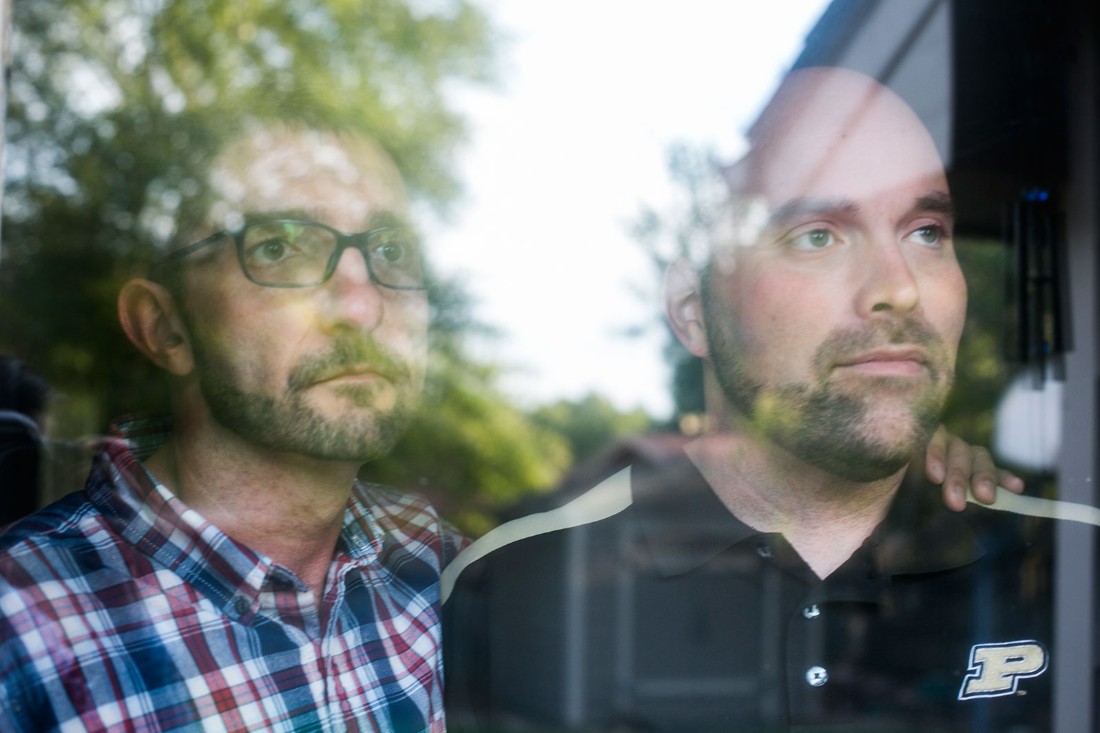
Jared Ellars, right, and Lee Stafford in their home on Friday, September 25, in Des Moines, Iowa. In 2013, they were denied a wedding celebration at the Görtz Haus by co-owner Richard Odgaard. Taylor Glascock for CNN
"Because of our faith," Richard remembers saying, "we cannot participate."
Lee and Jared don't remember hearing that. But all three men give roughly the same version of what Richard said next:
"I can't take your money, and I don't do anything for free."
Pursuing religious voters
In late July, as Ted Cruz struggled for traction in Iowa, his campaign released a short video of his interview with the Odgaards about their refusal to host the wedding and the consequences that followed. "Thank you for your courage," he said, "and thank you for your conviction." The video promoted an event scheduled for August 21 in Des Moines, the Rally For Religious Liberty, that would feature the Odgaards and others who had made similar choices. News of the event seemed to strike a nerve among the state's evangelical Republicans. In the month after the video's release, Cruz joined the top tier of candidates in CNN's Iowa poll.
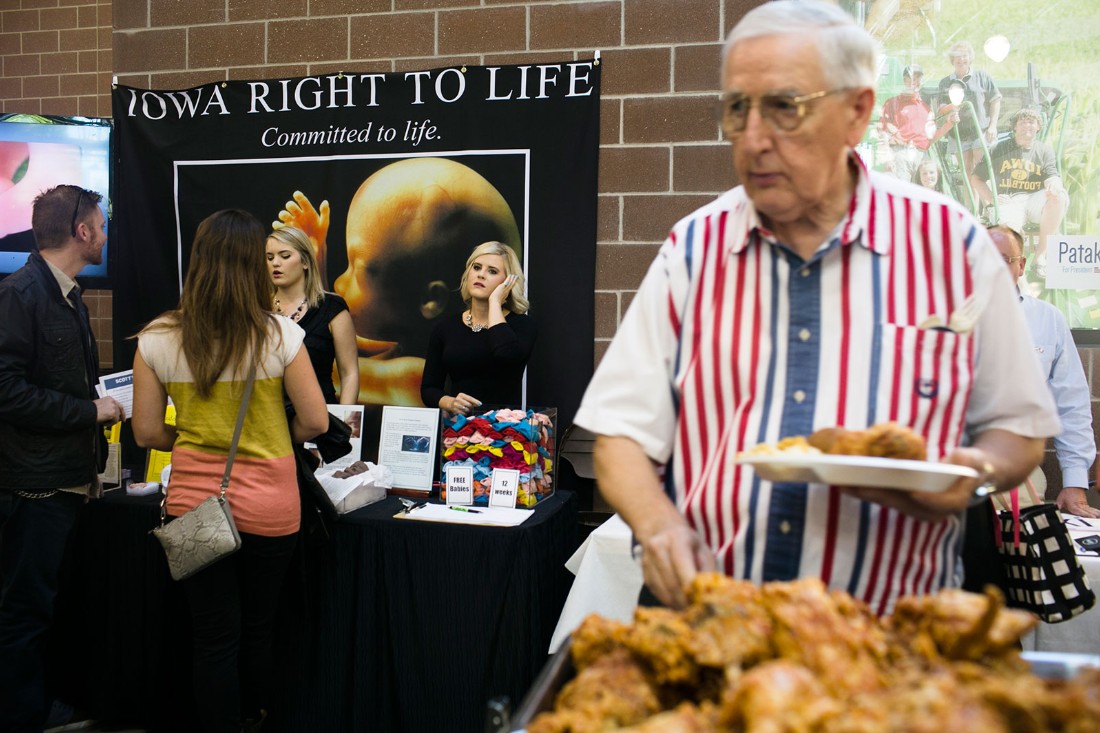
A man helps himself to a fried chicken buffet near an anti-abortion display at the Iowa Faith & Freedom Coalition's Fall Family Dinner. Defunding Planned Parenthood was a popular topic during the forum. Taylor Glascock for CNN
The rally featured an opening act from the Bontrager Family Singers, an Amish family with 10 children and multiple banjos. One of their songs mentioned Cruz by name and shared a title with his autobiography, "A Time For Truth." They sang about a land where children had a mother and father and addressed their elders with respect, where "marriage was one man, and a woman for life, and we could worship God as we pleased." Their message neatly aligned with Cruz's: Old-fashioned Americans have lost control of this country, and now they must fight to take it back.
The rally drew nearly 3,000 people, one of the larger crowds this year for a political event in Iowa. Cruz took the stage and called the Odgaards heroes, along with the florist who wouldn't provide flowers for a same-sex wedding, the baker who wouldn't provide a cake for a same-sex wedding, the T-shirt maker who refused to print messages that conflicted with his faith, the fire chief who lost his job because of what he wrote about homosexuality, and the Air Force master sergeant who was reassigned after telling his lesbian commander his views on traditional marriage. "Their story is your story," Bryan English, Cruz's Iowa director, told an audience that packed a convention hall and spilled into the foyer outside. "The only difference is, perhaps it hasn't happened to you yet."
If Cruz's message resonates among those who feel despised in the new America, it may have something to do with his own experience in being despised. Most Democrats in Washington wish he would jump in the Potomac. So do most of his fellow Republicans, because he calls them liars who work harder for corporations and lobbyists than they do for their own constituents. Cruz is so hated in the gay community that when the gay owner of a gay-friendly hotel was discovered to have met with Cruz, gay activists organized a boycott of the hotel. But in his autobiography, Cruz writes about bleeding for his principles. He imagines himself standing on the front line, shot full of arrows, refusing to give in. And this approach has paid off. In July, one of his super PACs took in $15 million from the Texas billionaire brothers Farris and Dan Wilks. Dan explained the gift by saying America needs "a leader that will stand up for biblical morals."
Then again, it is possible for a candidate to overuse religion in pursuit of religious voters, and thereby lose their votes. Cruz speaks the language of churchgoers, and he speaks it with the intonations of a megachurch pastor. At the rally in August he said, "The Lord tells us, where two or more are gathered in his name, he will be with us," which is one thing to say in church, and quite another when you have gathered those people in the name of Ted Cruz.
Digging in
Lee and Jared left the wedding chapel and walked to the parking lot. Jared felt as if he'd been kicked in the stomach. They got in the Camaro and drove seven miles to Living History Farms in Urbandale, another potential site for the ceremony. This time Lee tried a new approach.
"This is gonna be for a same-sex wedding," he told the woman giving the tour. "Is that gonna be a problem? 'Cause we wanna know right up front."
"No," she said, and they made a deal. Technically they were already married, after a no-frills legal ceremony in February that allowed Jared to add Lee to his employee benefits plan, and now they would celebrate that marriage with family and friends in the Flynn Barn on a Saturday in October.
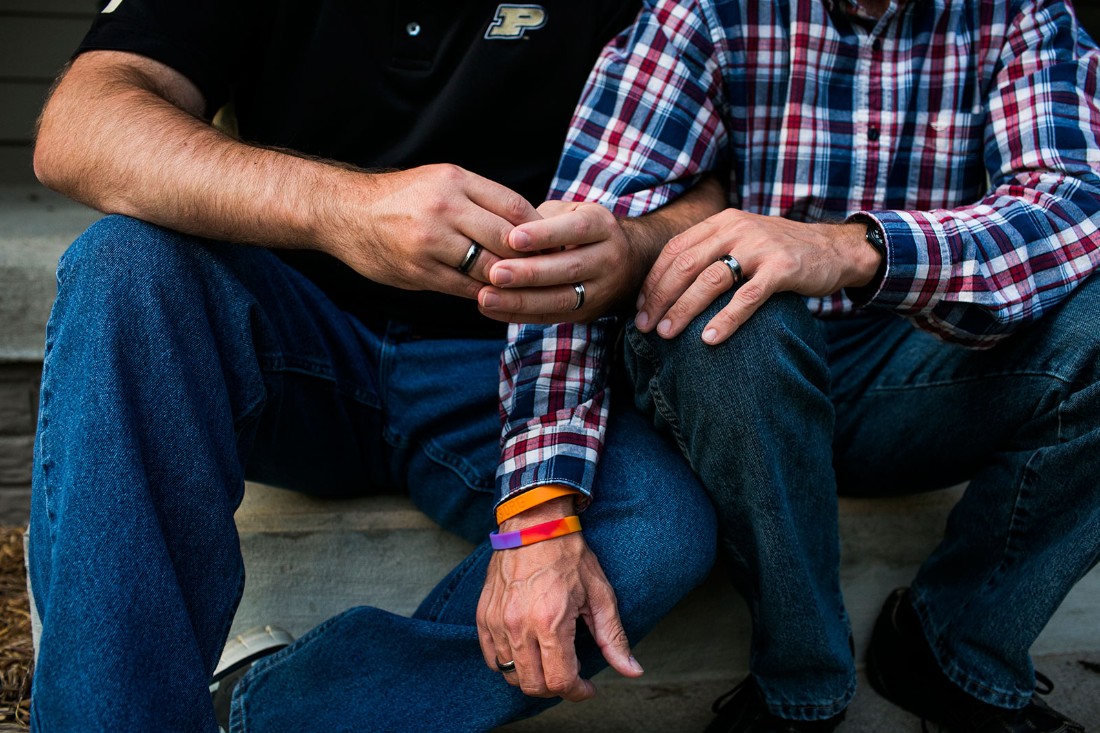
Jared Ellars and Lee Stafford were looking for a spot to celebrate their marriage. Taylor Glascock for CNN
Still, the incident with Richard Odgaard kept bothering them. Lee would later compare it to being swindled by a car salesman. He thought he should warn his friends. And so he went to Facebook, wrote the story, and hit "Post." Friends shared it with other friends, and those friends shared it with more friends. Word got around.
The Odgaards drove 200 miles to eastern Kansas that night to visit a niece who was dying of brain cancer. When Richard checked his phone, he saw an e-mail from a loyal customer and fellow businessman in Grimes. As Richard recalls, "His advice to us was, 'You've made a lot of people mad. I would strongly advise that you call this couple back ... tell them that you'll provide the venue at no charge. With a service that will — like they've never dreamed would happen. Because if you don't, they'll try to shut you down.' "
The Odgaards had been married for 20 years, ever since mutual friends set them up on a blind date at the Gage County Fair in Nebraska. He fell in love with her kind spirit, and found her "ornery in a good way." She admired his strong character, and what she called his "Danish stubbornness." Now, as the pace of national change accelerated, they dug in their heels together.
"You don't bend your faith in 24 hours," Richard said. "Or 24 years, for that matter."
The politics of Kim Davis
When he last ran for president, in 2008, Mike Huckabee used a blend of religious values and economic populism to win the Iowa caucuses and several primaries in the Bible Belt.
An ordained Baptist minister, he credibly positioned himself as the voice of the Christian right. Now at least five other candidates — Cruz, Rubio, Carson, former Sen. Rick Santorum and Louisiana Gov. Bobby Jindal — have real claims on that title, with even more chipping away at the base, and fundamentalist Christians have more choices than at any other time in recent memory. This may or may not be good for the Christians, because a split vote would diminish their impact, but it is certainly bad for Huckabee. His poll numbers declined steadily over the summer.
Early in September, when a federal judge sent Kentucky county clerk Kim Davis to jail for defying his order to issue same-sex marriage licenses, Huckabee saw an opportunity. "I'm headed to Kentucky on Tuesday to stand with #KimDavis," he tweeted on September 3. "We must end the criminalization of Christianity!"
One day later, another Twitter user posted this response: "Mike Huckabee is deliberately stirring up fear & hatred among Christians toward LGBT people. It's anti-Christian & inexcusable." It was Rachel Held Evans, who'd been raised in an evangelical household in Alabama.
Evans grew up believing gay people were going to hell. But over the years she began to suspect that her gay friends could not simply pray away their condition. What finally changed her mind was a book called "The Civil War as a Theological Crisis," in which the historian Mark A. Noll describes the way American pastors once used the Bible to justify slavery. "I felt really convicted," she said, "that we were making the same mistake again."
The New Testament does contain verses that seem to condone slavery, along with those that forbid women from teaching men or speaking in church, but many of today's Christians have decided those verses are no longer prescriptive. "Everybody picks and chooses," said Evans, now an Episcopalian and an author who writes about modern Christianity. She has a simple test for deciding whether a biblical teaching is useful today: "Is this helping me love my neighbor as myself? Is this helping me love the Lord with all my heart and mind and soul and strength?"
Evans is frequently called a heretic. Many fundamentalists believe that changing your definition of marriage also endangers your status as an authentic Christian. If that is true, the number of authentic Christians in America has plummeted in the last 15 years. Polling data released in July by the Pew Research Center shows that 62% of white mainline Protestants and 57% of Catholics are in favor of same-sex marriage. Even among self-identified white evangelicals, support for same-sex marriage has more than doubled since 2004. It now stands at 24%.
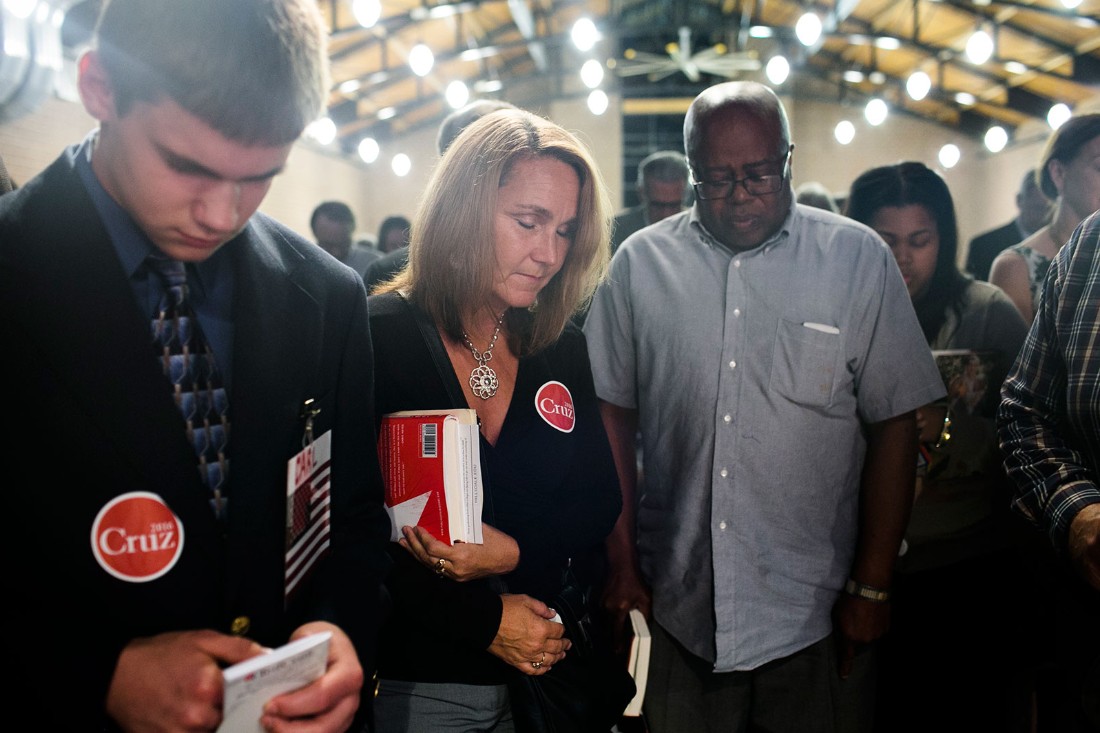
Attendees bow their heads during a closing prayer at the Iowa Faith & Freedom Coalition's Fall Family Dinner. Taylor Glascock for CNN
This spells trouble for the religious right. Year after year, more Christians and more Republicans change their minds. In March, about three months before the U.S. Supreme Court issued the landmark decision that legalized same-sex marriage across the nation, about 300 prominent Republicans filed an amicus brief in the case. The brief argued in favor of same-sex marriage on the grounds that its prohibition violates the conservative principle of limited government. Its signatories included David Koch, one of the famous Koch brothers, the billionaire industrialists whose network plans to spend nearly $900 million before the 2016 election to advance free-market causes. The Koch brothers have not made support of same-sex marriage a litmus test for their financial backing, but David Koch's name on the brief is one more sign that the corporate wing of the Republican Party wishes the social conservatives would shut up and get with the times.
Nearly all the Republican candidates have said that people like the Odgaards should be allowed to opt out of same-sex weddings, and nearly all of them said Davis should not have been ordered to jail. But some of them drew the line at a government official refusing to perform government functions. Sen. Lindsey Graham and Ohio Gov. John Kasich said Davis should follow the law.
An estimated 5,000 people turned out for Huckabee's #ImWithKim Liberty Rally outside the jail in Grayson, Kentucky. There was an awkward moment when Cruz arrived to visit Davis — a logistical mix-up, his spokesman later said — but everyone knew it was Huckabee's show. Davis was released in time for the rally. Walking onstage to Survivor's "Eye of the Tiger," the theme song from "Rocky III," she took the microphone with Huckabee at her side.
"I just want to give God the glory," Davis said as her supporters waved crosses between her and the television cameras.
Huckabee's poll numbers jumped slightly after the rally. But all through September Trump led the Republican field, even among white evangelicals, and Carson was close behind, even though he'd been slow to take up Davis' cause. There was no magic formula for turning appeals to the Christian right into general Republican support. Carly Fiorina gained the most in September, and she did that with a verbal knifing of Trump at the California debate. When asked about the controversy in Kentucky, Fiorina said Davis should do her job or get a new one.
A town reacts
Richard Odgaard had a regular job as a veterinarian in the livestock industry, but in the week after turning away the two men he stationed himself at the Görtz Haus so he could answer the phone there. "It was badly affecting our help," he recalled. "Because they were — they would pick up the phone and just absolutely get cursed up one side and down the other." Lunchtime revenue fell by half; wedding requests dwindled. Longtime customers said they would never visit again.
Meanwhile, Lee and Jared filed a discrimination complaint with the Iowa Civil Rights Commission. The commission opened an investigation. Lee found out about the angry calls and e-mails the Odgaards were getting, and felt bad about it, so he wrote another Facebook post asking everyone to stop. "When it took such a nasty turn from the LGBT and ally community," he said, "it was just wrong." Lee did his own investigation, tracing much of the hate speech to a couple of distant subconnections in his social network. He told them he was disappointed.
"They apologized to me," he said. "I don't know that they ever did to the Odgaards."
Betty cried every day for the first month, watching her business decay, wishing she could leave town and never come back. Both the Odgaards had been married and divorced before they met each other, and between them they have five grown children. Three of the five told them they were wrong about same-sex marriage and urged them to change their minds. Richard and Betty refused. Even when they didn't talk about it, the issue seemed to hang over family gatherings like a thundercloud.
When they reflect on this now, sitting in the twilight outside the old church as cars drive by on Route 44, they say the last two years taught them something about human nature.
"We know that there's a lot of people out there that supported us," says Richard, 69, "but they didn't want to be seen supporting us."
"Yeah," says Betty, 63. "That was interesting."
"In talking to them privately," Richard says, "you knew where they stood, but they didn't want to be seen supporting us. Because they would've been thrown into the same category as us."
"And people would call them haters and bigots," Betty says.
How best to appeal to conservative Christian voters?
The two Republican front-runners have been accused of hatred and bigotry — Trump for remarks about women and undocumented immigrants, Carson for offending gays and Muslims. But neither man fits the description of an evangelical Christian. Trump said last summer he could not recall ever asking God's forgiveness, nor would he name his favorite Bible verse. (A few weeks later he mentioned a passage about envy from the Book of Proverbs, though his quote could not be found.) Carson belongs to the Seventh-Day Adventists, whose reliance on extra-biblical teaching is so theologically problematic to some Southern Baptists that they disinvited him from a pastors' conference in April.
Still, Carson talks with deep emotion about his faith journey, which has made him a favorite among Republicans who describe themselves as "highly religious," according to polling by Gallup. He has also questioned Trump's faith. When asked to name the biggest difference between them, he said, "I've realized where my success has come from and I don't in any way deny my faith in God." Late in October, Trump responded in kind: "I'm Presbyterian. Boy, that's down the middle of the road, folks. In all fairness, I mean, Seventh-Day Adventist I don't know about."
In the space between the front-runners and Cruz, other candidates have struggled to define themselves as authentic Christians without veering into religious zealotry. Fiorina has done this with personal stories, including one about losing her stepdaughter to drug addiction and reciting Psalm 23 to overcome her grief. Meanwhile, Bush has had trouble finding the right balance. He is a devout Catholic, and at a Christian conference in August he gave a heartfelt defense of religious freedom. Nevertheless, several members of his campaign support same-sex marriage. He has deep connections with the socially moderate Republican establishment. In late September he skipped a social-conservative gathering called the Values Voter Summit and received only seven votes in the straw poll, finishing barely ahead of Sen. Bernie Sanders, the self-described Democratic socialist.
With more charisma and less political baggage than Bush, Marco Rubio is making a serious play for the conservative-Christian vote. He did not go to Kentucky to visit Kim Davis. He has not hitched his campaign to people like the Odgaards. His standard campaign speech appeals far more to hope than it does to anger or fear. And this understated approach has been effective. In monthly WORLD magazine polls of evangelical leaders over the summer, Rubio consistently finished first.
"He seems to be a serious bona fide Catholic who wants to reach out to the evangelical community," said Chad Pecknold, a theology professor at The Catholic University of America. "And if it benefits him politically, all the better."
Rubio may use softer rhetoric at debates and campaign events than Cruz or Huckabee, but he appears willing to take a stand.
"We are at the water's edge of the argument that mainstream Christian teaching is hate speech," he told the Christian Broadcasting Network in May. "Because today we've reached the point in our society where if you do not support same-sex marriage you are labeled a homophobe and a hater."
Rubio frequently attends two churches: the evangelical Christ Fellowship and St. Louis Catholic Church. This dual allegiance could help unite conservative Christians across denominations.
White evangelicals are not the only Christians who fear government persecution. Religious observers say this is also true of some fundamentalist African-Americans and some white Catholics. Just as some voters have left the Republican Party because of its heavy emphasis on traditional Christian values, others have abandoned a Democratic Party they see as increasingly hostile to Christianity. White Catholics make up nearly one-fifth of the national electorate. In 1992, nearly 60% of them identified as Democrats or leaned Democratic. By 2014, according to the Pew Research Center, that number had fallen to 39%. That shift overlapped with another one: From 2009 to 2014, the portion of white Catholics who saw the Obama administration as "unfriendly toward religion" increased from 17% to 36%.
These trends collide with larger changes in American public opinion. National support for same-sex marriage has risen steadily for the past 20 years. Nearly two-thirds of Americans support same-sex marriage, and those most likely to oppose it are getting old. Nearly 80% of younger voters, ages 18-34, support same-sex marriage, according to a CNN/ORC Poll conducted in May.
Just as Christian voters can be mobilized by fear of religious persecution, the Democrats hope to motivate gays and their allies with the fear that Republicans will try to pull America back into the past.
"So now we're going to hear a lot from the folks running on the other side," Hillary Clinton said October 3 at a breakfast in Washington for the Human Rights Campaign, a major gay-rights advocacy group. "And I want to tell you, believe what they say. If any one of them, heaven forbid, were ever to be elected president, they will do their best to threaten you and your families."
'We had no choice...'
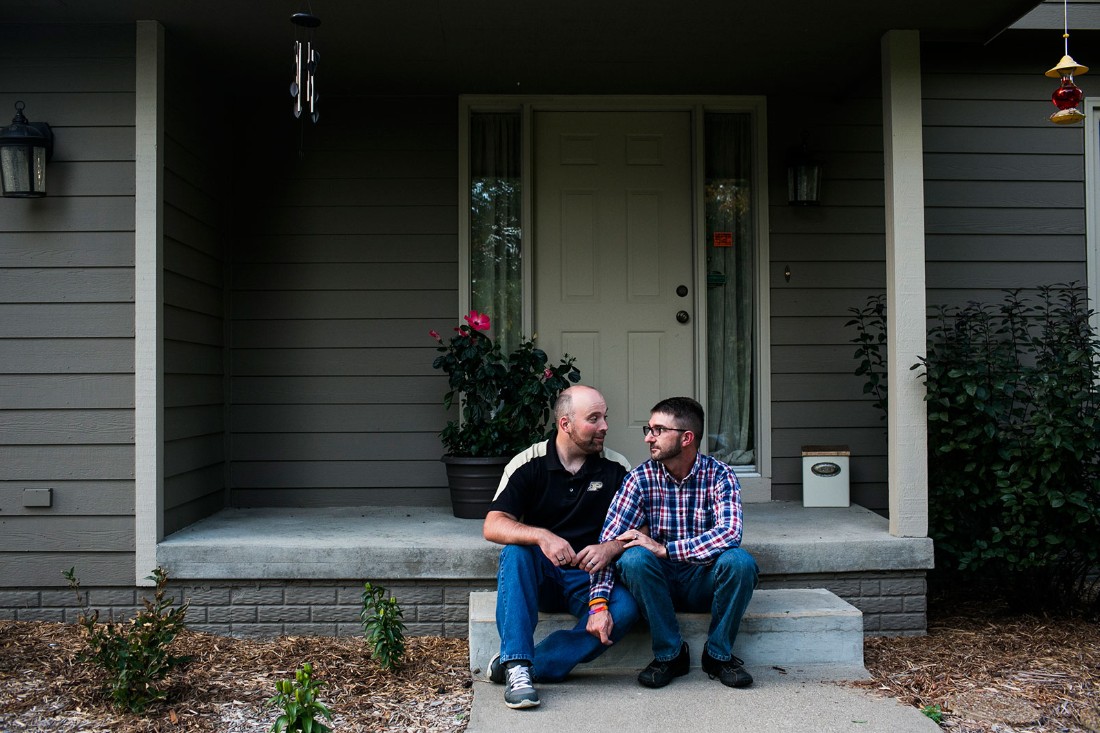
Jared Ellars and Lee Stafford in front of their home in Des Moines. Taylor Glascock for CNN
Lee Stafford and Jared Ellars live in a modest two-story house on the south side of Des Moines with an American flag on a pole in the front yard and a boat trailer in the garage. Lee is 42, Jared 34. Are they the activists the Odgaards believe them to be? They are quiet men who hold routine jobs in computer technology and avoid using the phrase "my husband" for fear of offending someone. Did they seek out the Odgaards six months after they were legally married to ask for a wedding they did not need? No, they say; the real celebration was always planned for October, to mark the 10th anniversary of their first meeting. Are they overstating the harm they suffered? Their anguish seems genuine, even two years after the incident, and as Lee struggles to tell the story, his eyes fill with tears. He says it was like meeting a school bully, and being told, "You're not worthy. You're not like us. You're not good enough."
But they were not in rural Indiana anymore, and this was not 1989. Now the law and the culture were on their side, and they were going to take advantage. During mediation they sat in a room with their lawyer, and the Odgaards sat in another room with their lawyer, and the lawyers went back and forth. Lee and Jared wanted a few things from the Odgaards: A pledge to follow state law, to fully serve and accommodate anyone who came in, to keep literature on their counter from the Iowa Civil Rights Commission. Was this reasonable? It certainly felt reasonable to Lee and Jared. It certainly felt unreasonable to Richard and Betty. Back and forth they went. The Odgaards sued the Civil Rights Commission in district court. A judge threw it out. The Odgaards appealed. The Civil Rights Commission found evidence of discrimination. The Odgaards dropped their appeal. They had to pay Lee and Jared $5,000, which Lee and Jared donated to a charity that fights school bullying.
"Now it was public what our response would be if a gay couple walked in for a wedding ceremony," Richard says. "So it was walk into the Görtz Haus, be declined, file a complaint and collect money. I mean, we set that precedent. Quite that simple. We had no choice but to get out of the business."
Do Lee and Jared feel sorry for Richard and Betty? Well, did anyone feel sorry for Lee and Jared in rural Indiana in 1989? Society is always pushing someone to the margins. They are sorry the Görtz Haus closed, just as a pastor is sorry when he learns that someone in his congregation is actively sinning in that way, just as a judge is sorry when someone goes to prison.
"It's a shame," Lee says, "that because that business can't follow the laws that now no one has the — no one has the, you know, can enjoy that venue. That's a shame. It's a shame that we couldn't. Certainly didn't want it to close for everyone. We wanted it to be open for everyone."
'We need a president of the United States who loves God'
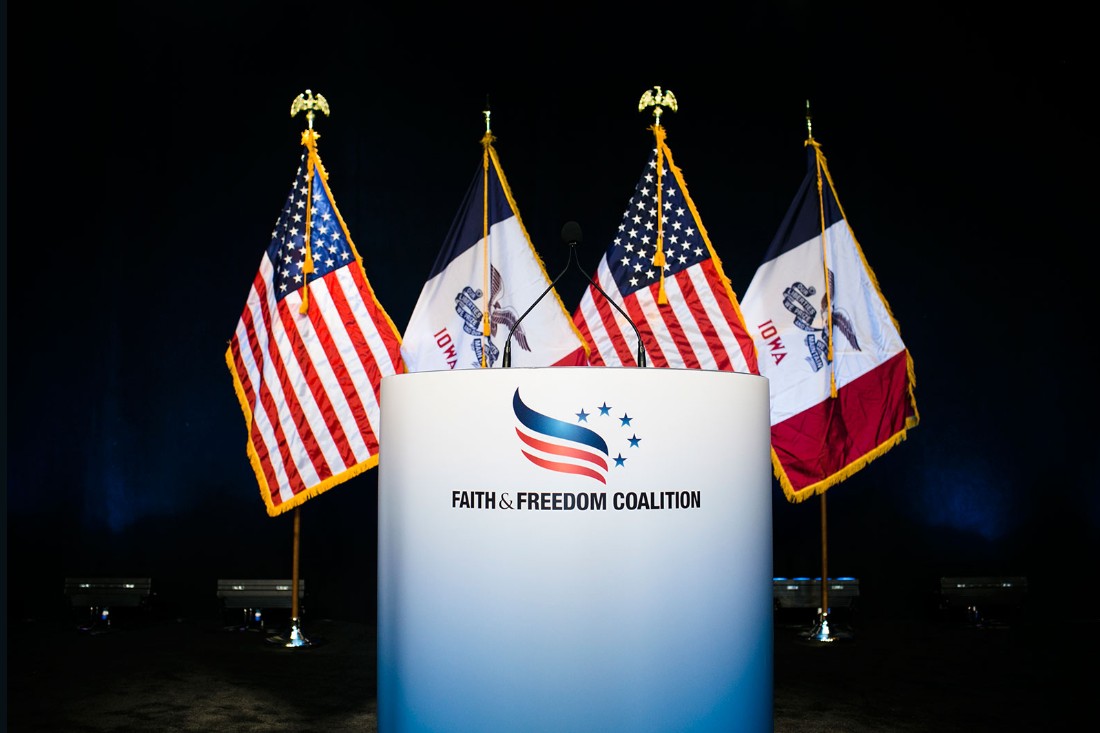
The lectern awaits the Republican presidential candidates at theIowa Faith & Freedom Coalition's Fall Family Dinner. Taylor Glascock for CNN
On the last Saturday of summer, Richard and Betty Odgaard drove to the Iowa State Fairgrounds to see Cruz again. Their new reality was not entirely miserable. Richard still had a good job in the livestock industry, and they had started a nonprofit called God's Original Design that used billboards and fliers to promote traditional marriage. Plus, the attention from Cruz had made them minor celebrities. A stranger recognized Betty in the parking lot and asked for a hug and a picture. At the door, a second woman approached with tears in her eyes.
"You have inspired us," she said.
Eight Republican candidates were scheduled to speak at a reception hall on the fairgrounds for the Iowa Faith & Freedom Coalition's Fall Family Dinner on September 19, and their presence drew out several members of the Iowa Atheists and Freethinkers. The Freethinkers' president, Russ Fulton, was asked what he thought about Christians' diminished role in society. He called it a positive development.
"Now they're starting to feel what everybody else has felt for hundreds of years," he said. "Needless to say, we don't have a lot of sympathy for them."
Inside, as the bright sun filtered through the skylights of a room that resembled a church fellowship hall, about 1,000 people sat around long tables and ate their fried chicken and green beans. Some wore their Sunday best; others were content with overalls. No Republican could win Iowa without appealing to a crowd like this. Former Sen. Rick Santorum went first.
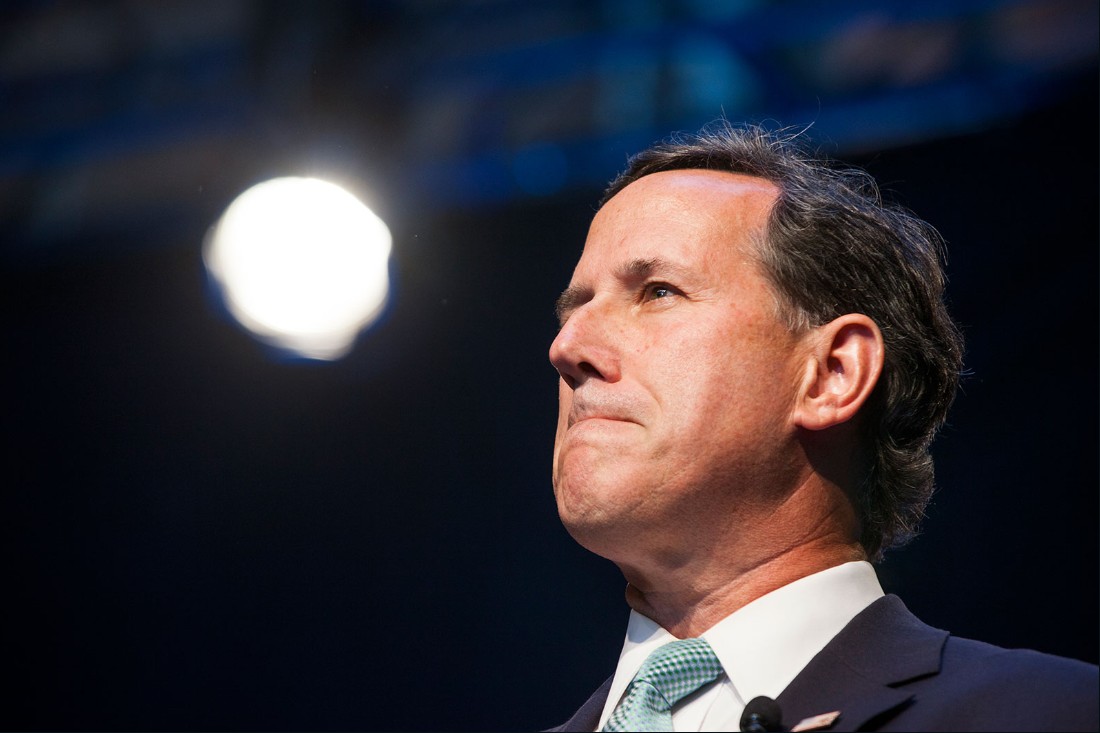
Republican presidential candidate and former Pennsylvania Sen. Rick Santorum speaks during the Iowa Faith & Freedom Coalition's Fall Family Dinner. Taylor Glascock for CNN
"Now we're prosecuting bakers and florists," he said. "We're jailing clerks. Because we have a government that is out of control."
Trump was next. Was this his demographic? Well, he did bring his Bible.
"Nobody will fight better, and nobody will protect you more," he said. "And I'm one of you. Just remember that."
Now here was Ralph Reed, founder and chairman of the FFC, still youthful at 54, not quite as brash as he'd looked 20 years ago on the cover of Time magazine as the leader of the Christian Coalition, but newly confident after helping the Republicans take over the Senate in 2014.
"We need a president of the United States who loves God," he said.
On that point, nearly everyone in the room could agree. But what exactly did that mean? How would it look? There were as many answers as Republican candidates.
"Jeb is a man of strong faith in our lord and savior, Jesus the Christ," the Rev. Dr. R.B. Holmes Jr. said on behalf of Jeb Bush.
"I'm proud to be clinging to guns and God," Louisiana Gov. Bobby Jindal said.
"The persecution of religious liberty ends today," Cruz said he would tell America on his first day as president. The applause sounded like heavy rain. He had just won an endorsement from the Gun Owners of America, and a week later he would win the straw poll at the Values Voter Summit. How would he love God as president? The same way Huckabee or Jindal would: with a Bible in one hand and a gun in the other.
Ohio Gov. John Kasich was in Michigan for another Republican event, and he appeared in a prerecorded video on the screen above the stage. Kasich did not sound like his competitors. He did not even sound like a politician. He sounded like a man at his kitchen table who had just remembered something very important.
"More humility," he said. "Caring about my neighbor. Living a life bigger than myself. Being a center of justice and peace. That's what it's really all about."
Night was visible through the skylights, and the voters had grown restless. Many went to the restroom or walked outside as he spoke. It is easier to think of others when you are not afraid for yourself.
"You're out there planting the seeds," Kasich said. "God bless you for doing that. Because after all, we're all in this together."
The final chapter?
The Odgaards hosted their last wedding in late 2014, closed their doors for good in July, sold the building in September. The buyer was Harvest Bible Chapel, a fellowship of evangelicals who'd been looking for a permanent home. Richard and Betty knew this because they'd started attending Harvest a few months earlier, and so the transaction was a way to turn the old church into a new church and keep it in the family. The pastor, Ryan Jorgenson, interpreted the Bible the same way the Odgaards did, which meant only one kind of wedding would be happening there any time soon. Jorgenson worried about getting sued, maybe even losing, but he had no intention of changing his mind.
"So help me God," he said.
